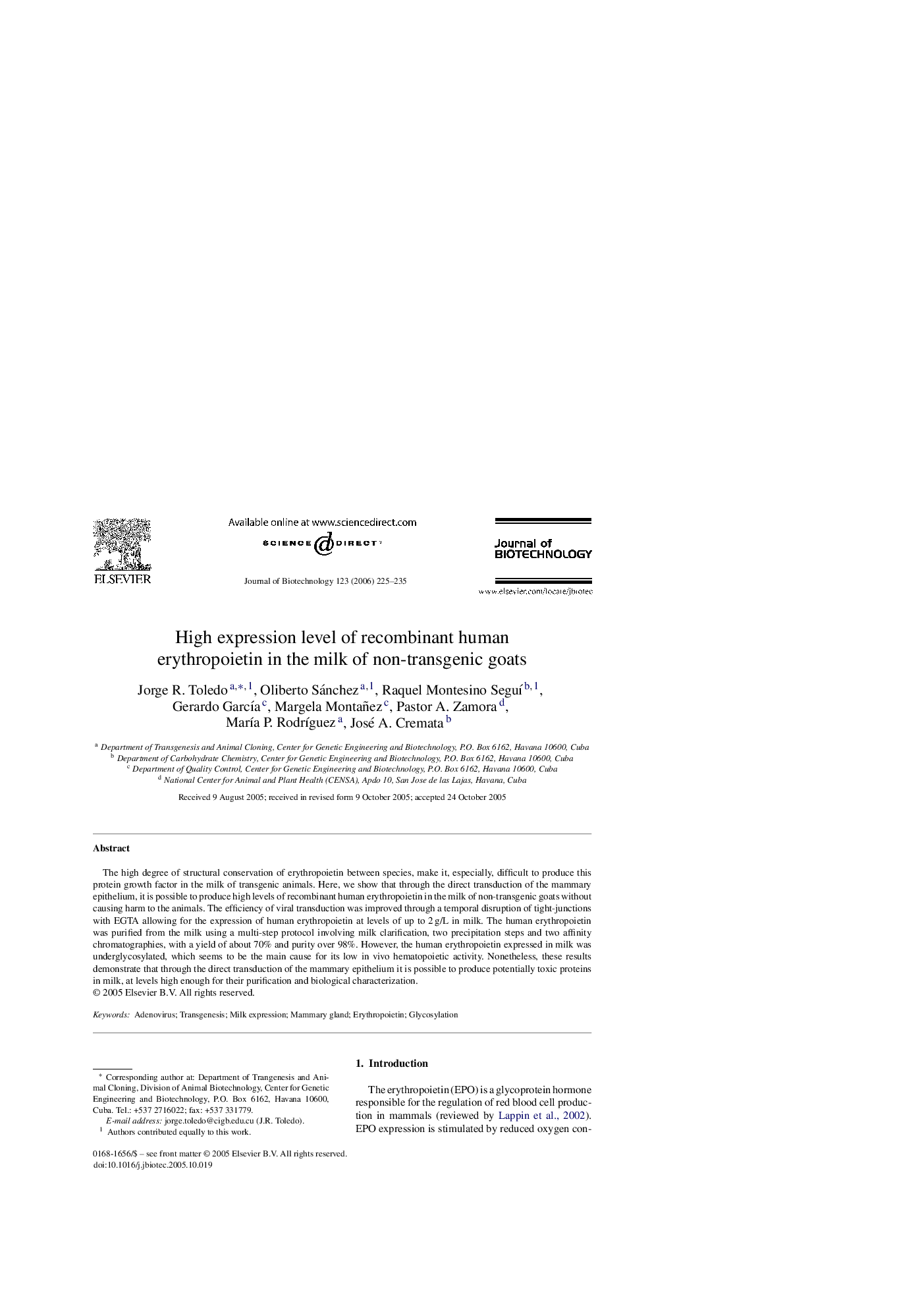| Article ID | Journal | Published Year | Pages | File Type |
|---|---|---|---|---|
| 25656 | Journal of Biotechnology | 2006 | 11 Pages |
The high degree of structural conservation of erythropoietin between species, make it, especially, difficult to produce this protein growth factor in the milk of transgenic animals. Here, we show that through the direct transduction of the mammary epithelium, it is possible to produce high levels of recombinant human erythropoietin in the milk of non-transgenic goats without causing harm to the animals. The efficiency of viral transduction was improved through a temporal disruption of tight-junctions with EGTA allowing for the expression of human erythropoietin at levels of up to 2 g/L in milk. The human erythropoietin was purified from the milk using a multi-step protocol involving milk clarification, two precipitation steps and two affinity chromatographies, with a yield of about 70% and purity over 98%. However, the human erythropoietin expressed in milk was underglycosylated, which seems to be the main cause for its low in vivo hematopoietic activity. Nonetheless, these results demonstrate that through the direct transduction of the mammary epithelium it is possible to produce potentially toxic proteins in milk, at levels high enough for their purification and biological characterization.
